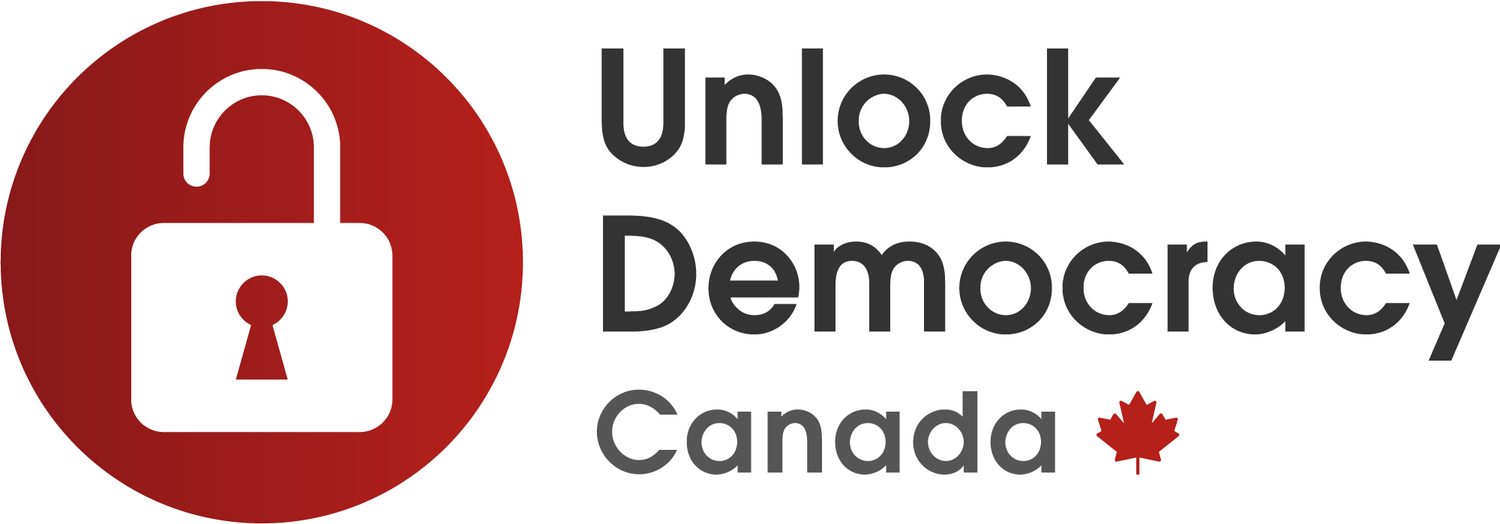Ontario Report Card 2022
It's almost Election Day in Ontario! If democratic reform is important to you, you may want to take a close look at each party's commitments on this topic.
And to make it easier for you, we've already researched and evaluated the platforms of thirteen parties (every party with more than ten candidates), based on seven unique criteria.
Details + Methodology
LOCAL CHOICE
Our national Local Choice campaign aims to give municipalities the right to use ranked ballots for local elections. The Greens and Liberals put this explicitly in their platform, while the NDP have made a verbal commitment but did not put it in the platform. The Conservative Party, oddly, does not have a platform. But they have made their position clear on the topic. No other party has a clear position on this topic.
[Learn more about ranked ballots in Teardown, Chapter 3: Better Ballots]
VOTE REFORM
For provincial electoral reform, we published our scoring methodology back in March - two months before the election:
At Unlock Democracy Canada, we believe that politicians should never choose their own voting systems because they are in a direct conflict of interest. We strongly prefer the use of an independent randomly-selected Citizens' Assembly to explore, research, discuss and design an ideal system. Based on this scoring method, only the Green Party gets an A. The NDP loses points for choosing their own system unilaterally (although we do think they've chosen a great model: Mixed Member Proportional). The Liberals have proposed a new voting system that is still a winner-take-all system and will do nothing to improve proportionality. (In fact, their proposal could actually increase partisan distortions and amplify bloated fake majorities.) Their original proposal scored a D, but they did alter their commitment to make it a one-time pilot project followed by an independent review.
The only other party with a commitment was the Communist Party, who also support Mixed-Member Proportional (MMP).
[Learn more about voting systems and proportional representation in Teardown, Chapter 3: Better Ballots]
VOTE 16
Unlock Democracy Canada is a proud partner of Vote16 Canada. The only two parties that have a clear commitment in their platform to lower the voting age are the Green Party and the Communist Party. The Liberals have committed to "exploring" the topic. (The NDP has a good long-standing policy on this topic, but it was not included in their platform.)
LOBBYISTS
Excessive corporate lobbying, revolving doors and regulatory capture all threaten our democracy. The NDP has the strongest wording on this topic:
"We’ll close loopholes that allow lobbyists to skirt conflict of interest rules and implement expanded “cooling off” periods to increase the time before a former government insider is allowed to become a lobbyist. We’ll introduce tough financial penalties as enforcement. And we will ensure that the lobbyist registry is updated to ensure the public can see all meetings attended by lobbyists and exactly who they met with."
The Green Party promises to "Require a five year cooling off period before MPPs and government advisors can register as lobbyists"
And the New Blue Party offers a vague promise to "ban lobbyists from party politics". (We're not sure what that means... but we like it).
[Learn more about lobbying in Teardown, Chapter 2: Levelling the Field]
ELECTION DATE
Holding a general election on a weekday is foolish. Most people have Monday-Friday jobs, and their evenings are busy with family responsibilities. That's why the Super Bowl isn't held on a Thursday. The Liberals offer to "explore" weekend elections, which earns them a C. But the Greens get an A for promising to "Make the day of a general election an official paid holiday." That's the gold-standard (preferably mid-week, Tues-Thurs).
CAMPAIGN FINANCE
Getting corporate money out of politics is crucial for our democratic health. The Green Party offers to "Create limits for municipal elections whereby no person may contribute more than $1000 to all candidates, combined." and to "Reduce donation limits for provincial political parties, candidates, and constituency associations to $1000 per year." The NDP commits to "Immediately restore the cap on donations limits to $1,600 and restore the rules requiring people to declare they’re donating their own money" and to "Ask Elections Ontario to head up a full review of political finance limits and rules, working with all political parties, as well as experts and concerned citizens."
The Community Party offers to "Dramatically lower campaign spending limits for provincial and municipal elections" and to "Regulate the formation and campaign spending of corporate front organisations."
The New Blue party gets an F for promising to scrap the existing meager public financing of political parties.
[Learn more about campaign finance reform in Teardown, Chapter 4: Bribes, Winks and Nods]
INDEPENDENCE OF MPPs
Members of Parliament (provincial and federal) need more autonomy to act on behalf of their constituents - rather than just following orders from their party whip. Two parties have formed their entire platform around this issue: The None of the Above Party and the Consensus Party of Ontario. In fact, neither of these parties have traditional "platforms" at all, because they believe in the independence of their elected caucus. (We excluded them from the "final grade", for this reason, but we gave them both an A in this particular category).
The Ontario Party commits that their own MPPs would have a "free vote on all bills, ensuring that they are able to vote according to their conscience and represent their constituents' voices"
The Green Party exercises free votes in Canada, but doesn't mention the topic in their platform.
[Learn more about decentralizing legislative power in Teardown, Chapter 5: It's my Party and I'll Cry if I Want to]
Still reading? Wow, you're as nerdy as we are! Sign up for our newsletter for more geeky content. ; )


